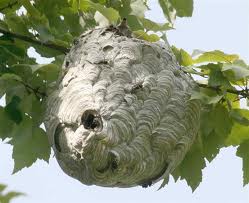Why are bees in Massachusetts so active late summer?
You're hanging out in your backyard, lounging by the pool, or maybe trying to enjoy a late summer barbeque, but you're attacked by bees. This is such a common scenario that we've come to expect at this time of year. Yes, late summer bee season in Massachusetts has arrived. But why? 
Bees won't buzz off in August and September because they're extremely active foraging for nectar from blooming plants. This is critical for bees because they'll need to gather enough to store for the winter, in order for their colony to survive. Nectar is a form of carbohydrates, while pollen is a protein that allows bees to thrive.
Wasps are also enjoying a late summer buzz in activity. Early in the season, wasps are finding easy sources of protein by consuming other insects, including mosquitoes. But as more flowers and plants bloom late season, wasps are able to shift their attention to the "carbo-loading" ease of nectar.
Bees and wasps do serve important roles in our environment. However, when they form nests in our yards or on our homes, they may pose a threat to humans. Some of the trickiest bee removal situations we face, at Burgess Pest Management, involve removing nests from interior walls.
If honey bees are on your property, please be sure to remember that they are protected under the law. A qualified bee keeper must safely remove the nest.


